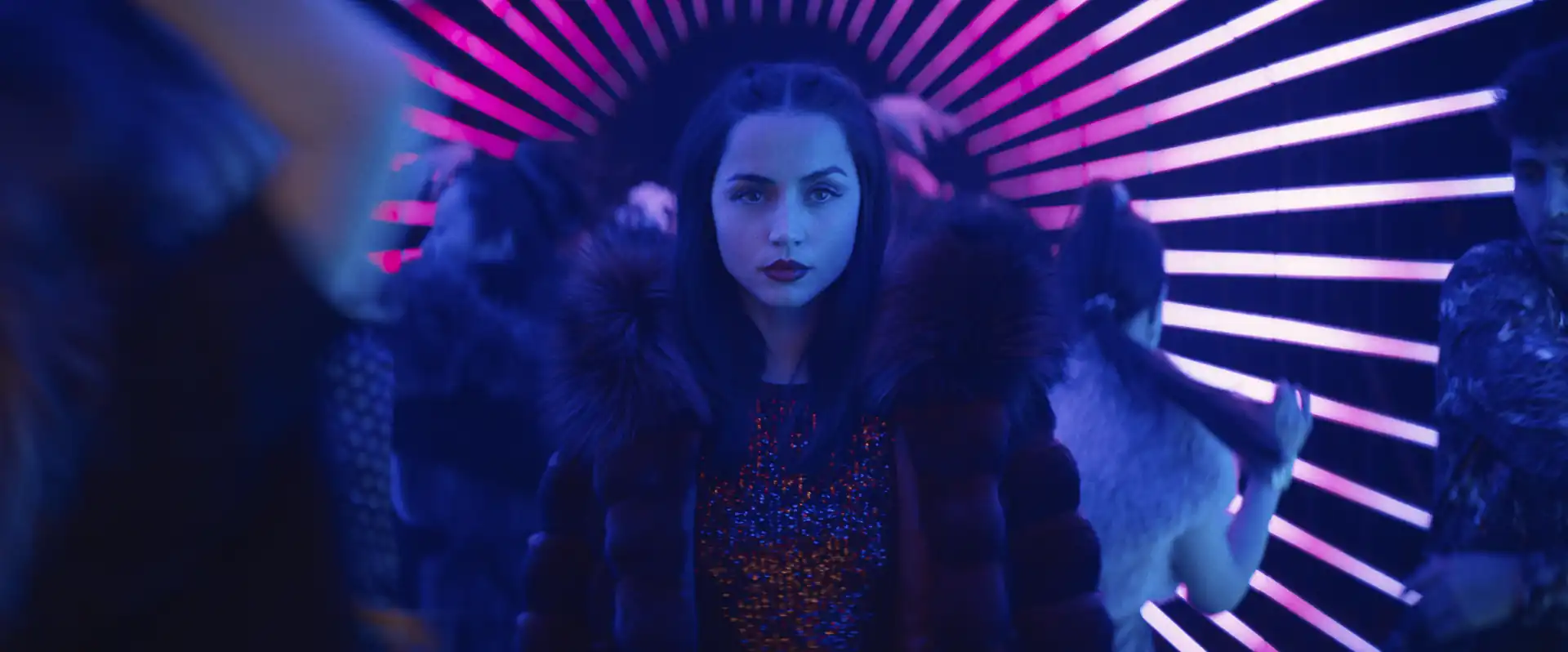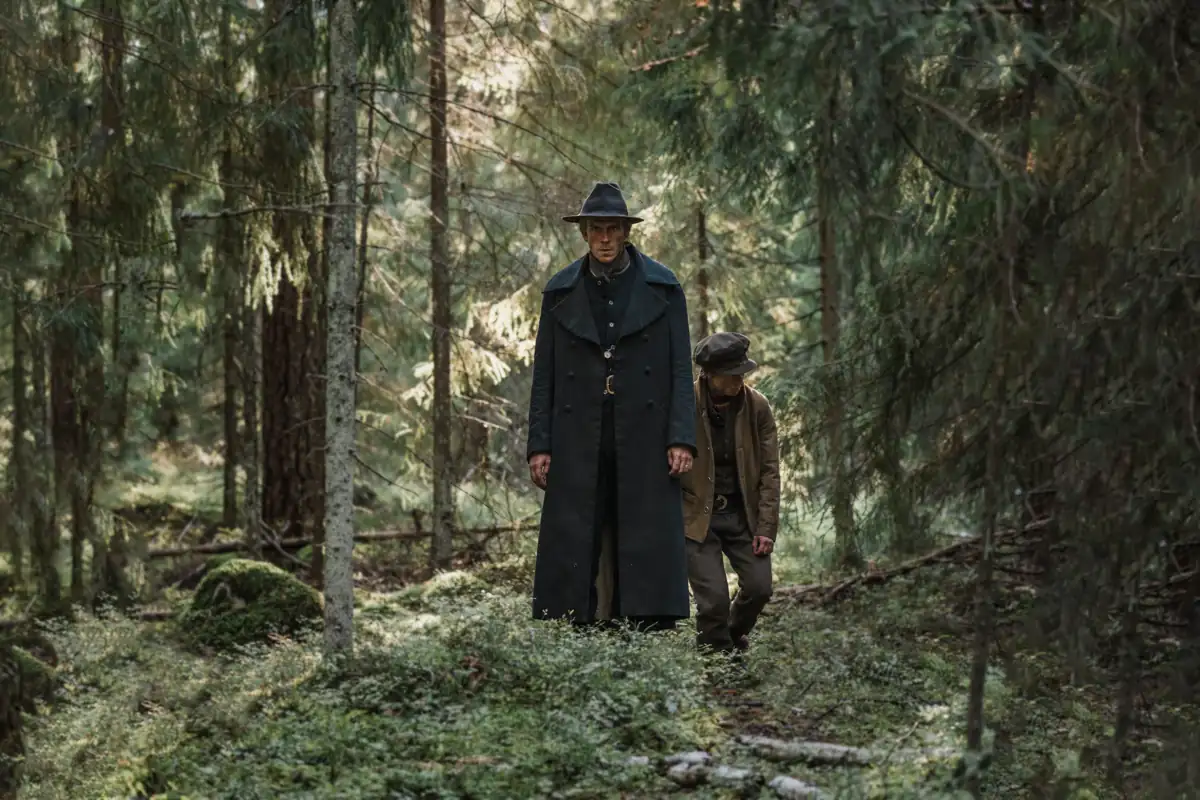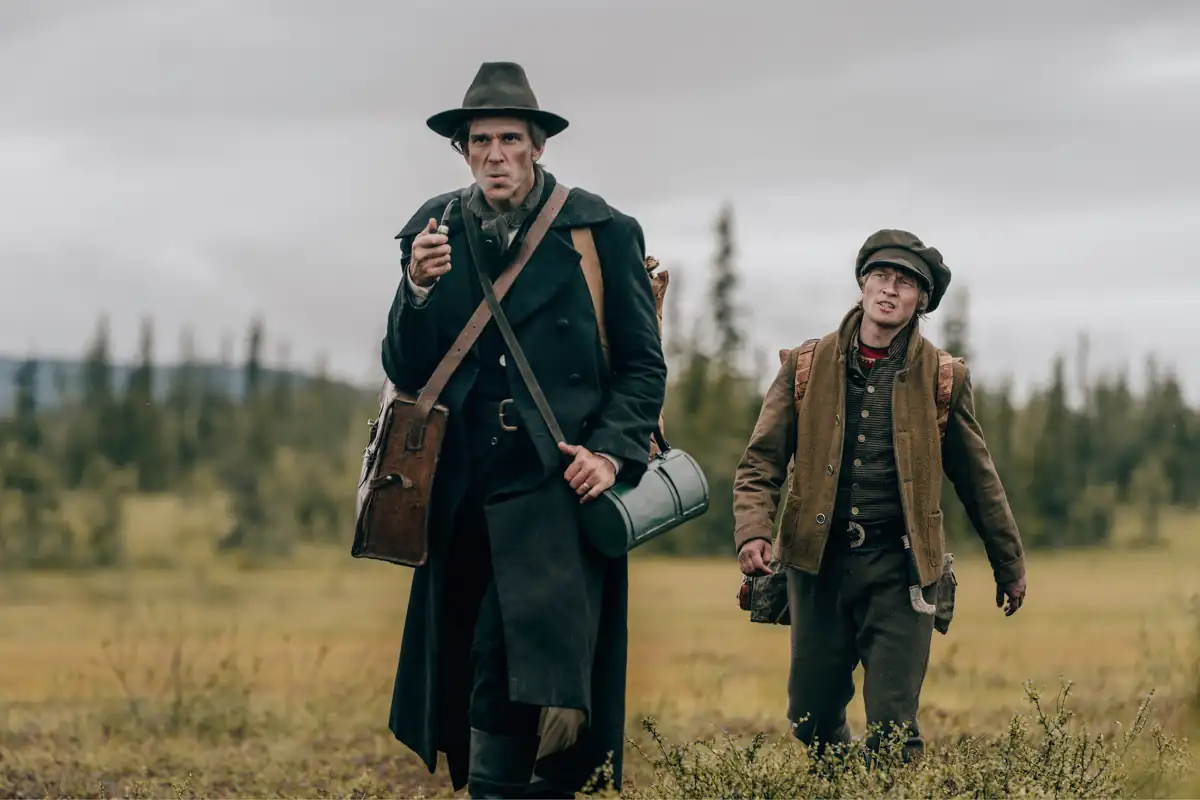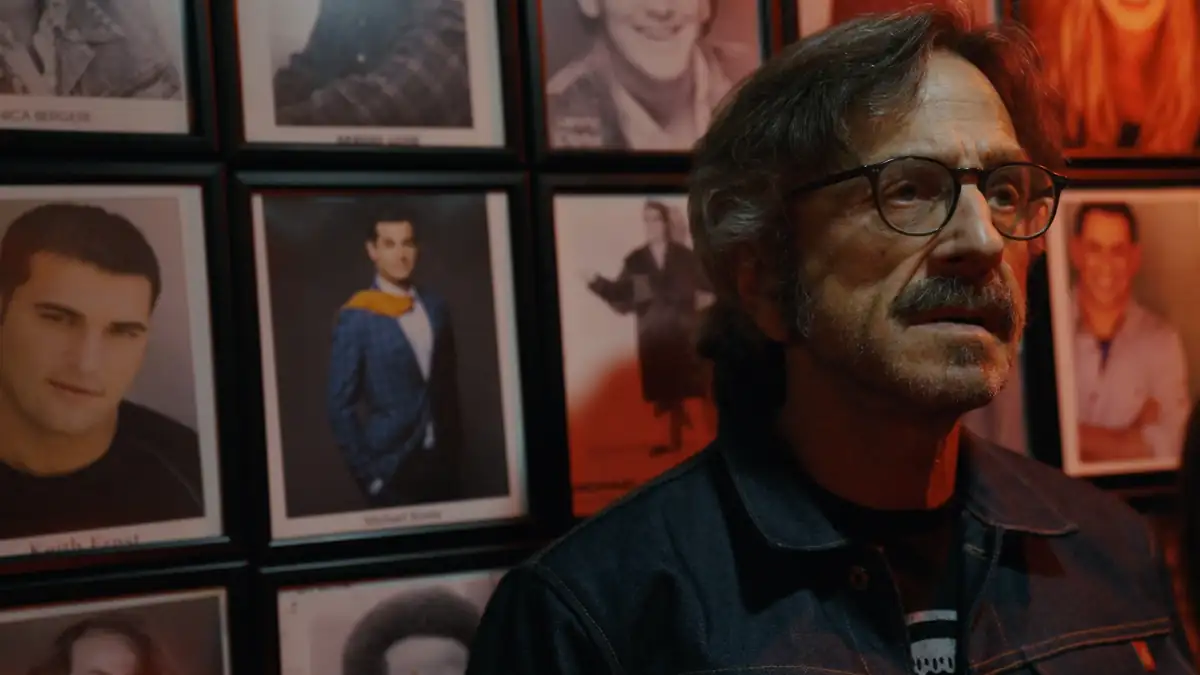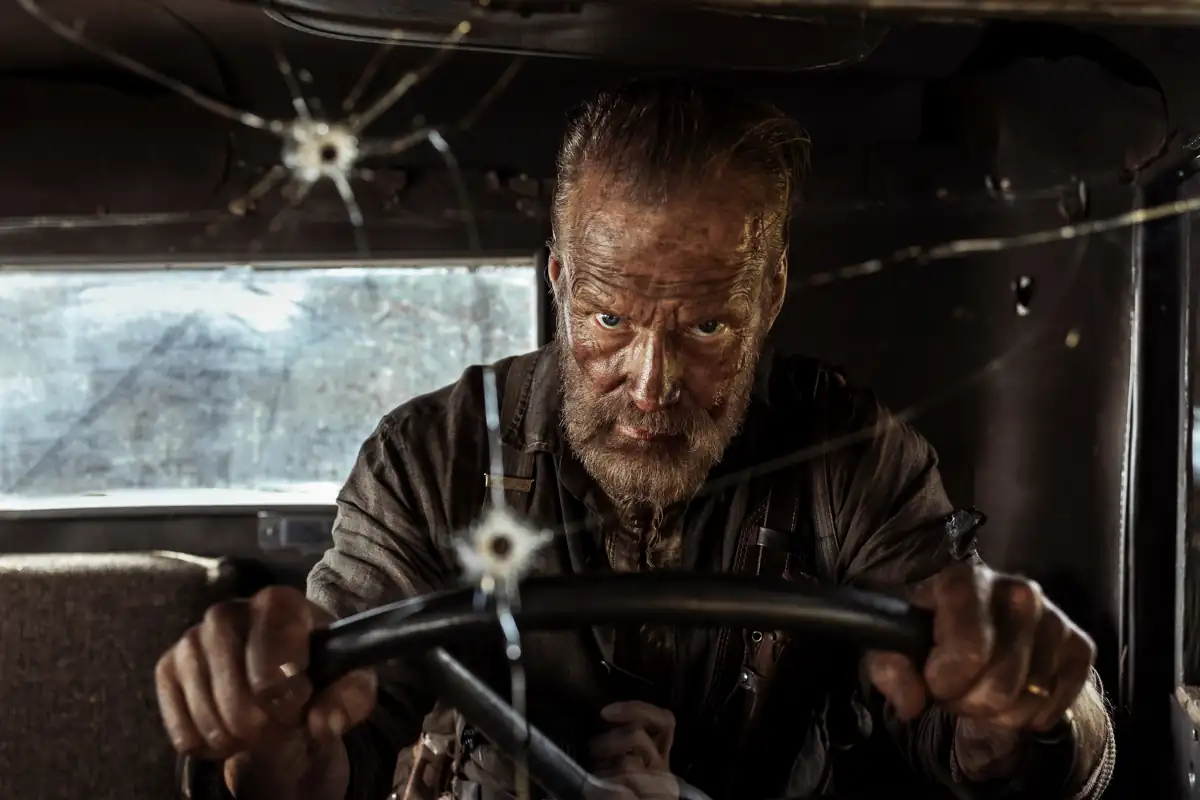Ana De Armas is magnetic as the titular Ballerina, Eve, in Len Wiseman's tiresome action romp that never thrills despite a near constant barrage of action. While fans of the increasingly expansive John Wick franchise will probably enjoy what's on offer, Ballerina brings very little new to the table. In effect, it's essentially the same film as the last three in the series.
The story is as bare-bones as any other Wick movie. At a young age, Eve sees her father murdered by a cult of assassins he once belonged to. Swearing revenge, she joins the Ruska Roma, John Wick's adoptive assassin family, and spends the next 15 years training. When opportunity comes, she heads out on her bloody mission, whether her matron, The Director (Anjelica Huston), approves or not. That's it.
This is a series that lives on vibes. Anything resembling a full cinematic meal is cast out early in pre-production. All focus is on glitzy locales, expansive set-pieces, and making sure the cast looks as good they can while firing a variety of weaponry.
On that front, Ballerina is a success. Ana De Armas is impossibly attractive in every single scene. Ian McShane, Gabriel Byrne, Huston, and Keanu Reeves are hugely charismatic and understand their assignment. Nobody is playing a real character. Instead, their job is to give an essence of an idea of a caricature that looks amazing in a suit. Mission successful.
The real test for enjoyment comes from your tolerance for this type of action. In the last decade, the Wick series has popularized a certain style of new Hollywood choreography thanks to the work of stunt coordinator turned director Chad Stahelski. In short: long sequences of mostly bloodless violence choreographed within an inch of their life. While it's Wiseman picking up directing duties this time around, Stahelski's influence is in every frame of the picture.
For me, these scenes are tremendously boring. It's clear De Armas and Reeves are committed actors who work hard to sell the fantasy. Their ballet with the stunt actors is fantastic and deserves its praise. But this is still action without heart or soul. It's a shooting a gallery of faceless thugs where everyone waits on the sides for their turn. Once you see it, the result feels anemic and forced. The action doesn't reveal character nor does it drive plot. It happens because these are films designed around the shootouts. The story itself is filler, the CGI bullets and explosions are the stars.
Watch, for example, a big set piece involving De Armas with a hilariously well-placed katana. In a single unbroken take, she wipes out a handful of thugs as the camera slowly pulls away to reveal the full extent of the carnage. You're supposed to only focus on her, as De Armas gracefully dances through a choreography fulfilling the promise of the film's title. Should you happen to glance at the corners of the frame, you'll see everyone waiting their turn, counting the steps, until it's time to run into the sword.
This is the case with every Stahelski production since the first John Wick. It's the problem that comes with escalation. In Chapter 1, Wick barely fought more than a few thugs at a time. It was already impressive to think one man could take out three armed goons at once. As the films grew, so did the number of henchmen. By Chapter 4, Keanu was in an all-out war with the entirety of Paris.
In Ballerina, De Armas escalates the violence into a sequence involving an entire mountain town. For a brief moment, it feels like something out of the Resident Evil games. It's also a test of patience: you're either fully in at this point, otherwise you're going to have a bad time.
Because Ballerina, like John Wick, needs you to accept that everyone is bullet proof (because their suit jackets are lined with Kevlar), and those that aren't can take an entire clip of bullets before they considering keeling over. In the course of the final action sequence, De Armas is shot, stabbed, cut, run over, dropped from a height, blown up, and burned, and it barely registers.
Why are we watching this? It isn't fun when the hero is immortal and has absolutely no danger unless the plot requires a contrivance to end the scene. Like Wick's previous chapters, the whole film feels like you're watching someone else play a videogame with cheats on. For a minute, it's easy to admire the work and money they've put into another one of these things. After that, once you realize there's two more hours of this, it gets tedious.
At one point, the Wick series held promise of a bizarre and charming fantasy world, which the franchise never lived up to. For a moment, it feels like Ballerina might finally push that further. It doesn't, because this is a spin-off set during the third chapter of Wick's adventure, so everything has to follow the main timeline.
It's another wasted opportunity in a series that collects them like they're going out of style. Why create a world of assassins, pepper it with rules and agreements and tenets, and then not follow any of it? Ballerina coasts by with brand recognition, and leans hard into Ian McShane's ever-reliable Winston to pad out the parts where the plot wears exceedingly thin. Despite this, most exposition follows the same pattern: Winston warns De Armas not to do something, The Director frowns, and De Armas does it anyway.
By the time we reach the fifteenth gun battle, this time involving two people firing flamethrowers at each other from behind waist-high cover and three meters apart, I began to check the time. At two hours in length, Ballerina is luckily a full hour shorter than the last John Wick movie. Sadly, it feels just as long.

